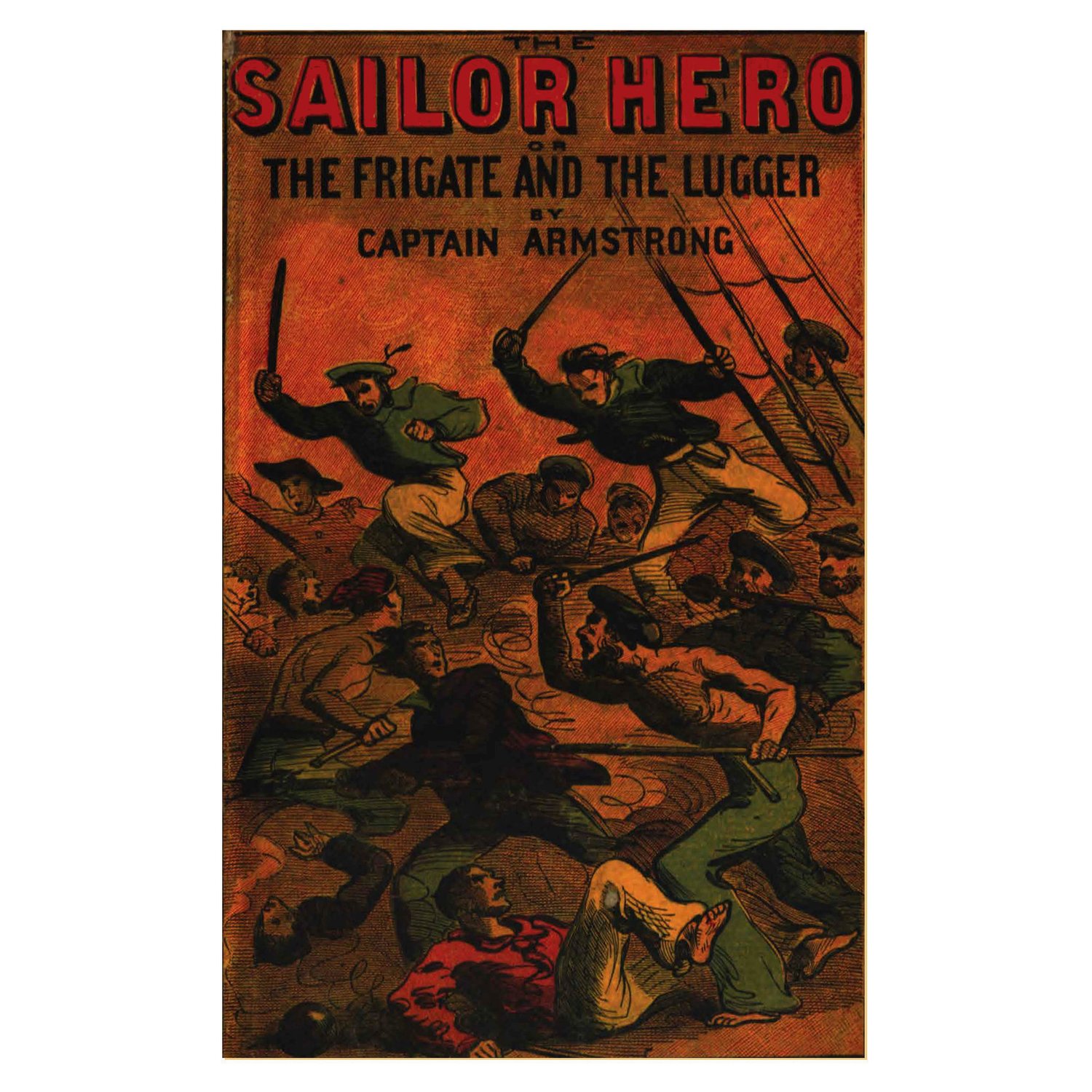
The Sailor Hero; or, The Frigate and the Lugger
This epic-length, 142,000-plus-word novel of romance and military adventure chronicles the rise from humble origins of an orphan boy from midshipman in the British Navy during the Anglo-French wars of the late 18th and early 19th centuries, to commander of his own ship-of-war and recognized heir to an honorary title and large fortune.
The book was originally published in three volumes as The Frigate and the Lugger: A Nautical Romance in the year 1861 by London publisher T. Cautley Newby; and then was re-published as The Sailor Hero; or, The Frigate and the Lugger by another London publisher, Ward and Lock, in 1863. This digital version uses the cover and title of the 1863 edition but the rest of the reproduction adheres strictly to the original three-volume 1861 edition.
The author of the 1861 edition is listed as F. C. Armstrong, the 1863 edition as Captain F. C. Armstrong, both of which refer to Francis Claudius Armstrong (1802–1872), a man about which little is known except that he was born in the Isle of Man, possibly served as a captain in the Sardinian Navy, and later in life lived in Kidwelly, Wales. To these scant tidbits of biographical information we can add that he wrote a dozen or so nautically-themed novels and that he is sometimes confused with Frances Charlotte Armstrong (1838–1930), another author who also listed herself as “F. C. Armstrong.”
Preparing old books for digital publication is a labor of love at Travelyn Publishing. We hold our digital versions of public domain books up against any others with no fear of the comparison. Our conversion work is meticulous, utilizing a process designed to eliminate errors, maximize reader enjoyment, and recreate as much as possible the atmosphere of the original book even as we are adding the navigation and formatting necessary for a good digital book. While remaining faithful to a writer’s original words, and the spellings and usages of his era, we are not above correcting obvious mistakes. If the printer became distracted after placing an ‘a’ at the end of a line and then placed another ‘a’ at the beginning of the next line (they used to do this stuff by hand you know!), what sort of mindless robots would allow that careless error to be preserved for all eternity in the digital version, too? Not us. That’s why we have the audacity to claim that our re-publications are often better than the originals.
